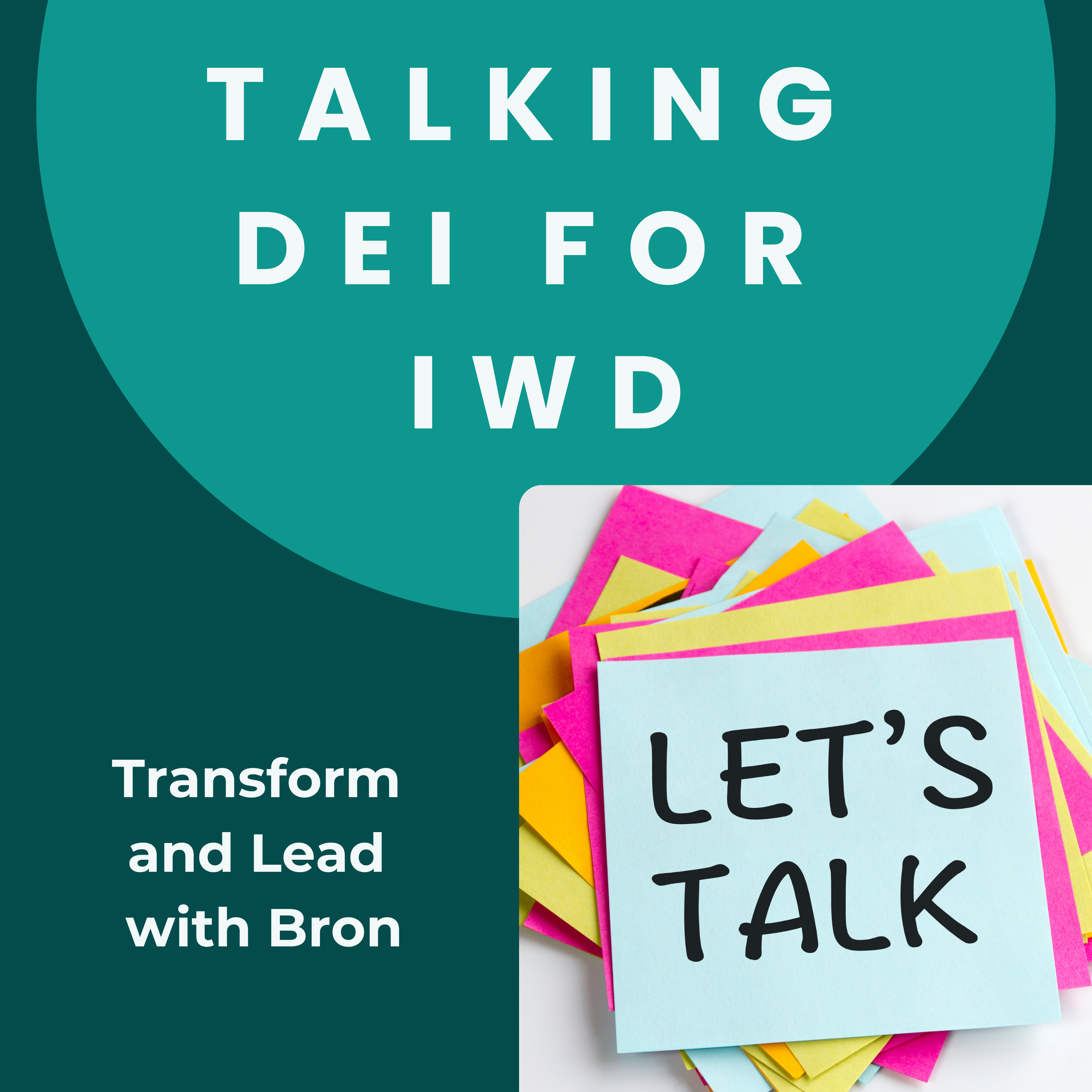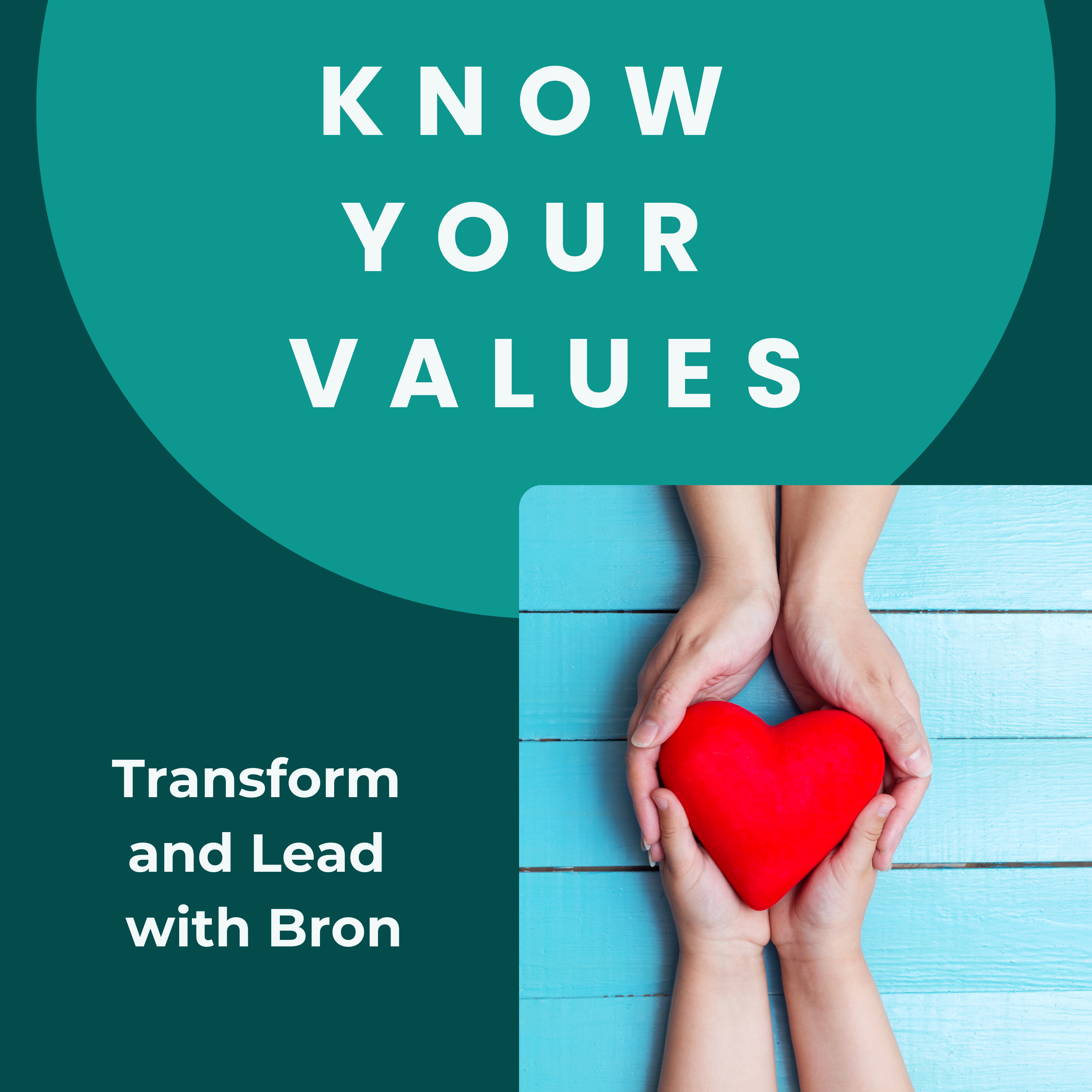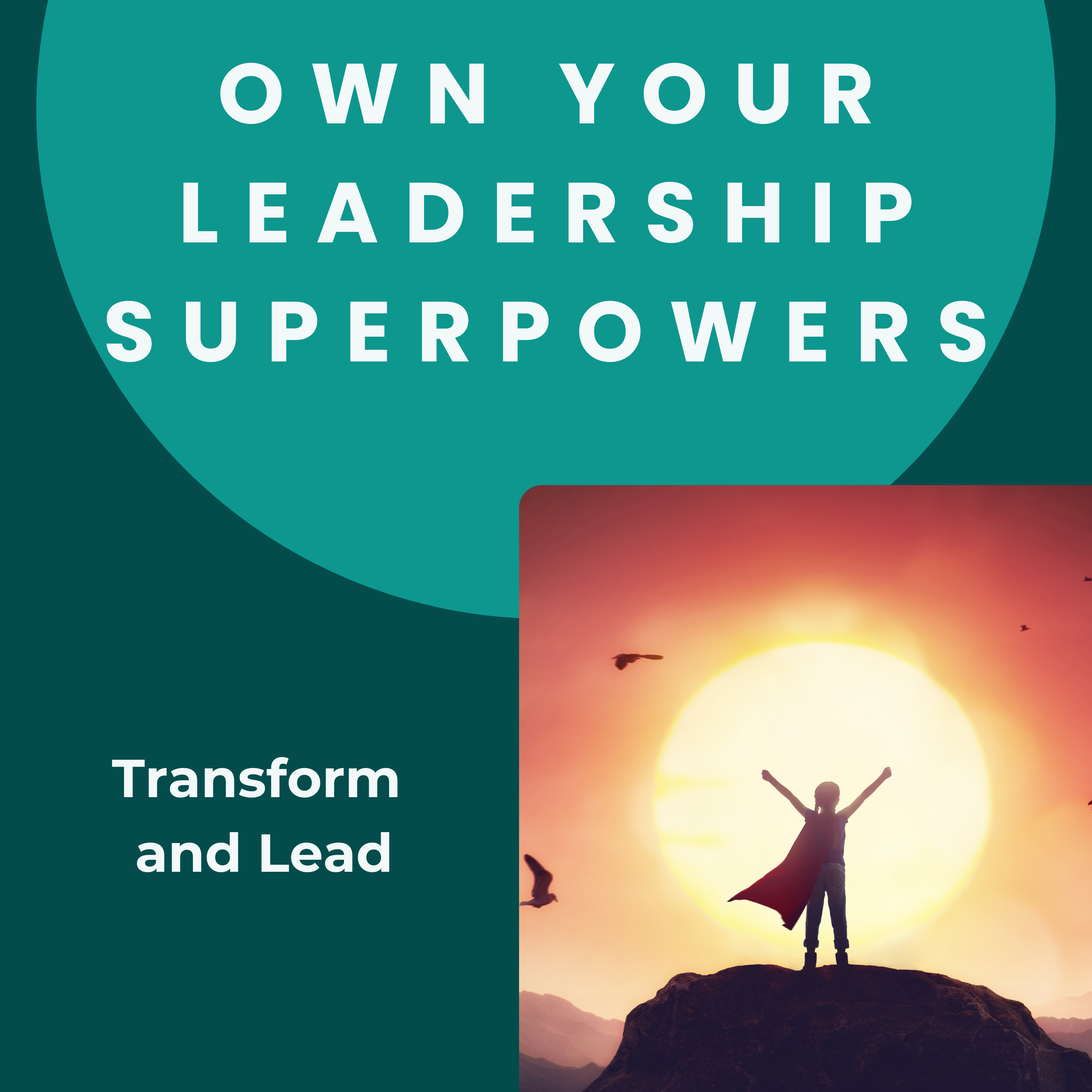Episode Transcript
[00:00:04] Welcome to Transform and Lead. I'm Bron Stephens, ex CEO turned executive coach who is all about women, uplifting women. I know what it's like to question whether your way of leading is enough. You've worked hard, you're ambitious, and you want to do big things without having to fit into someone else's mold. This podcast is here to give you practical, powerful ways to own your ambition, femininity and power so that you can lead with confidence, your way.
[00:00:30] Welcome back to Transform and Lead. I'm Bron Stephens, your personal cheerleader in helping you to embrace the pause and step into your power. And today we're having the chat that you know you need to have and have been putting off. The kind that if we were curled up on the couch with a glass of wine or whatever floats your boat and you said, braun, I'm kicking butt, I'm doing everything across all of it and, and I'm still wondering if it's enough and I'm freaking exhausted. I can't do any more. And I'd say, sweet Jesus, girlfriend, that sounds like a lot. I hear you, I've been there. And are you up for my perspective? Because I think you're stuck in performance mode. You're not failing, you're winning too hard. Performance is when you're leading from a place of proving instead of from presence. It's when your value feels tied to your output, your responsiveness and your perfection, rather than your who you are and the power that you have within you to lead as a whole and beautiful human. You're not just doing your job, you're performing, polishing and over functioning to make sure that everyone's okay and no one questions you. And it all looks shiny on the outside and it's absolutely exhausting underneath. And if it's not exhausting underneath, then it looks exhausting to everyone else and they feel like they can't live up to the expectation. I either way, you're not leading, you are performing.
[00:01:51] But you've earned your place at the table. You don't need to keep proving yourself to be there. And if you're performing over owning your power, it will be the thing that stops you getting to where you want to go.
[00:02:04] I'm going to share my own story in this space now, and it's almost a decade ago. Actually, it's probably more than a decade ago now. When I was at Telstra and I was leading a high performing team, we were delivering $64 million projects. They were global. I was taking calls at all of the day and night and I was kicking butt and taking names. They were big results. And I was constantly pushing and constantly on. And I was reliable, respective, productive. I was the most prepared, the most organized, the most cheerful, the most everything and completely running on fumes. I was the fixer. So I was the one who'd pick up the pieces, smooth everything over. I could be dropped into any mess and I would sort it out. And I wore it like a badge of honor until I couldn't anymore. I was trying to fit into this box of perfectionism, to try and smooth things over that were not mine to smooth and not mine to own. But because I was in this performance space, I was constantly performing at this higher level to show that I could be there and should be there.
[00:03:05] And then I started waking up with this low level dread and I couldn't switch it off. Even outside of work. My brain was looping through conversations, risks, outcomes, fixing everything in advance. And I kept going because that's what high performers do, right? Until I couldn't. I ended up taking some time off and not a long sabbatical or anything glamorous, just some space to breathe because I couldn't keep pretending that I was okay.
[00:03:28] And our bodies will often tell us what our minds are refusing to hear. And this was certainly one of those cases where it was enough.
[00:03:37] And in that space, something shifted. And I realized that my burnout wasn't failure and it wasn't a reflection on me not being able to cope. It was, it wasn't even a surprise. It was just a blinking red light that said this way of leading, this isn't it, this isn't you. And that's where I started rewriting what leadership looks like for me and what it should look like for all high performing women. We shouldn't be contorting ourselves, we shouldn't be performing. We want to do leadership that feels like us. We want to be strategic, expansive, values, led and human. And this shows up not just for me, but in all of the women that I coach. That's how we play best. That burnout was not the end. It was the beginning of leading in a completely different way. Not because I couldn't hack it, but because I refused to keep shrinking into a version of leadership that asked me to over function, overperform and underlie.
[00:04:33] Let's talk about the difference between performance and power now. So performance is that hyper vigilant, hyper capable, slightly manic drive. It's being over prepared and it's saying yes because you can't bear to disappoint by saying no, it's finishing the job and polishing it and doing the follow up because you know no one else will.
[00:04:53] When you're doing that, you're not leading. You're spinning 10 plates while narrating your competence and wondering why it doesn't feel powerful. Power. Power is slow, it's sharp, it trusts. We're not talking about power over others here, we're talking about power with them and for them. Power is knowing that you don't have to prove anything to anyone and that when you allow others to step into their own power, it gives you more power yourself.
[00:05:23] Performance wants applause. Power just is, and people see and feel the difference. Performance will get you noticed, it might even get you promoted, but it won't sustain you, it won't nourish you and it won't let you lead in a way that feels good in your bones. And ultimately, performance will drive disconnection because you're so busy doing and hustling that you're not pausing to look up, look around and create space for others. Power, on the other hand, power feels calm, clear, like you can breathe. It gives you access to your best thinking. It opens the doors for others without emptying you out. And you create that power with, not that power over, by stepping into your confidence that you will cope and by sharing your humanness with others. Choosing power over performance isn't about doing less. It's about doing what matters in a way that serves you. And that's the goal. That's the shift. That's where your leadership becomes yours again.
[00:06:21] Let's do a quick pulse check. You might be in performance mode. If you mentally rehearse every meeting like it's opening night on Broadway. You reword or reread emails seven times to make sure that no one can misread your tone and that it's worded perfectly. You say yes, even though your calendar looks like a game of Tetris with a vengeance and you hit every metric and still feel like you need to be more. And finally, if you don't do it, you know no one else will. You've never given them the chance to, but you know they won't. If any of that sounds familiar, I've been there too. And that's not you being broken. That's you operating from an old pattern, one that worked when you were proving yourself and you did need to be all in and all on all of the time. But as you continue to go through your leadership journey and you get more and more senior, it doesn't fit anymore. That's not where you want to play. As you establish yourself as a leader and you demonstrate those results, you want to step into your power and out of that performance.
[00:07:24] So what do we do instead? I could tell you what I would do, but rather than share that, I want to share the wisdom that some of my own clients have unlocked in our sessions to create a shift gently, intentionally and without burning the whole thing down. Because I think quite often it's one thing to hear from me, it's another thing to hear from these amazing, amazing women that I coach who are running major corporations, have huge teams and departments under them, and hearing the wisdom that they have in this space.
[00:07:51] The first one Stop proving, start trusting. And this is about acknowledging that you've already earned your seat, you're not auditioning, you're in and now leading. Like it how? Start by noticing when you're about to justify a decision you've already made. So this is after collaboration, not instead of, but instead of justifying. Pause, breathe, say the decision simply and let it land. Practice saying this is what I've decided without the follow up paragraph or apology that goes with over explanation and keep a confidence journal. Track one moment each day where you lead without over explaining or seeking validation and celebrate those little wins.
[00:08:32] The second one lead strategically, not reactively. And this is about the fact that you don't need to answer every question or fix every glitch. What if your power isn't allowing space for others to step in and ask better questions instead?
[00:08:45] How do you do that? Firstly, block out 30 minutes a week in your calendar to step back and look at the bigger picture. Get really strategic in that time and ask yourself what's the real opportunity here?
[00:08:57] And then instead of replying immediately to every team's message, email or request that comes through, take a beat or take a lot of beats and ask yourself, do I really need to jump in here? What will happen if I don't? If you don't know the answer, experiment by setting some time frame expectations for yourself to give others the opportunity to step in. So for example, leave emails for 48 hours, voicemails for 24 hours, Teams or Slack messages for two hours, and texts. Give those an immediate response if that's how you operate. But you'd be amazed how well people solve their own issues when you give them the space to Sometimes we're so busy performing and jumping in to get things done that we don't allow others the space to do it for themselves. And the third one? Anchor in alignment not approval. And so this is where you ask yourself if you're doing something personally. Am I doing this because it matters to me and aligns with my values?
[00:09:47] Or am I doing this because someone might feel annoyed if I say no? And if you're in the workplace, it's am I doing this because this aligns with the strategic direction I'm here to execute? Or will someone feel annoyed if I say no? So how do you do that? You check in with your values and before you say yes to the next request, you have a look. Does this line up with my values? Is this something that is adding value to my life and is going to contribute to my power and my purpose? Or is this something that I'm doing for someone else? And check in if it's at work to make sure that it's aligned to what you're trying to achieve at a strategic level. Don't do it just because if it doesn't align in either of those ways, practise saying no in a way that still feels generous. So this isn't necessarily about setting a hard boundary so much as that's not something I can take on right now. What I can do is X, Y or Z. Or can I help you find another path forward? That generosity means that you're owning your power in the most fulsome and wholesome way by still offering support and letting other people step in and solve their own problems.
[00:11:00] Here's my invitation to you this week.
[00:11:02] Answer these questions. Where are you still over performing to feel safe? And. And what would shift if you led like you were already trusted? And know that this isn't about changing everything at once. Just pick one moment this week. One meeting, one conversation, one decision and experiment. Try pausing instead of jumping in. Say less, but mean more. Ask one good question instead of solving everything or offer someone else the opportunity to solve the problem for you. You don't need to prove that you can handle it all. We already know that you can. You got to where you are because you can. Now let's find out what happens when you don't. You don't need to be more. You already are. And if you're feeling the nudge that maybe, just maybe, you're done with the overachiever circus and ready for something steadier, something U shaped, come and find me. My details are in the show notes. Thanks for being here. You're doing so much better than you think. And next time someone calls you a safe pair of hands, smile sweetly and tell them that you're sure they are too. I'll see you in the next episode.


